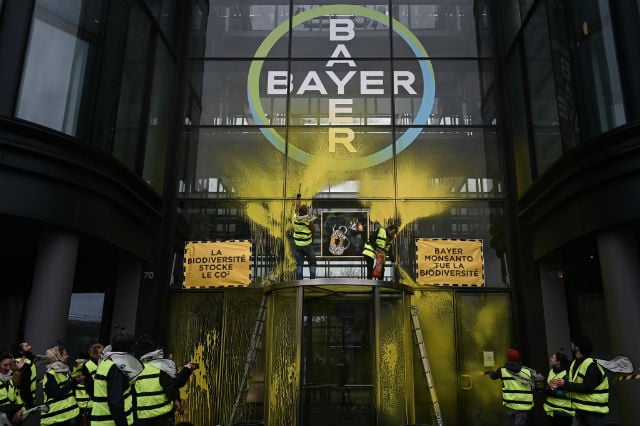“The demonstration of a causal link between the weedkiller Lasso and symptoms reported by Mr François is lacking,” a French-language statement released by Monsanto said.
On Monday, a French court found Monsanto legally responsible for the poisoning of Paul François with one of its herbicides in 2004, in a verdict that could have global implications.
Grain farmer François, 47, inhaled the powerful weedkiller when he opened up a sprayer in 2004.
He became nauseated, began stuttering and suffered dizziness, headaches and muscular aches, rendering him unable to work for a year.
Monsanto was accused of keeping Lasso on the French market until 2007 despite bans of the product in Canada, Britain and Belgium.
On Tuesday, the Monsanto statement said: “We disagree on the point that a prejudice could have been caused accidentally by Lasso or on the point that Monsanto allowed this prejudice to occur.
“We are thus disappointed by the court’s decision and will therefore file an appeal.”


 Please whitelist us to continue reading.
Please whitelist us to continue reading.
Member comments